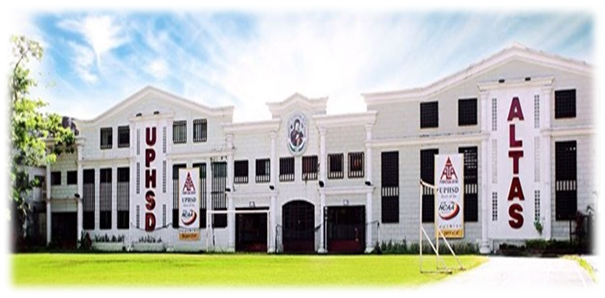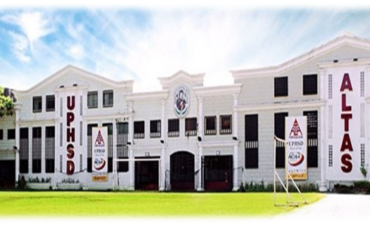If you are considering pursuing your MBBS in the Philippines in 2024, you are making a wise choice. The Philippines is known for its high-quality medical education at affordable costs. However, managing your expenses while studying abroad can be challenging. In this blog post, we will discuss 5 tips to help you save money on your MBBS journey in the Philippines in 2024.
Choose Your University Wisely
Picking the right university is a crucial step when planning your MBBS in the Philippines. Institutions like Manila Central University and Angeles University Foundation are known for offering high-quality medical education without breaking the bank. It’s important to dive deep into research about potential universities, focusing on their accreditation, the quality of their medical programs, and the overall cost, including tuition fees. Universities with solid reputations not only ensure that you get a top-notch education but can also open doors for scholarships and financial aids that significantly reduce your expenses.
Remember, the aim is to balance affordability with quality education. Don’t just look at the tuition fees, but consider the value of the education you are receiving. Checking the universities’ official websites, reaching out to current students or alumni for firsthand experiences, and comparing the offerings of each university can help you make an informed decision that aligns with both your career goals and budget.
Apply for Scholarships and Financial Aid
Getting financial help can make a big difference in covering your MBBS expenses in the Philippines. A lot of universities there have scholarships and financial aid for students from other countries. These might be offered because you’re doing really well in your studies or because you need the financial support.
Also, don’t just stop at the university’s offers; look for scholarships from other groups or government bodies too. They can help pay for your classes and your day-to-day living costs. To increase your chances, make sure to apply early and meet all the application requirements.
Filling out forms and writing essays might take some time, but it’s worth it if it means less stress about money. This step could greatly reduce how much you need to spend on your education and living expenses while studying.
Opt for Affordable Accommodation
Finding a place to live that doesn’t drain your wallet is key when you’re studying in the Philippines. You have options like living in dorms or sharing an apartment with other students. These choices are not only kind to your budget but also offer a chance to make new friends and share experiences.
Look for places that are close to your university. This way, you can walk or bike to class, saving money you’d otherwise spend on buses or taxis. Another great idea is to consider a homestay.
Living with a local family can be less expensive than other housing options. Plus, it’s a fantastic way to dive deep into the Filipino culture, making your stay more meaningful. Remember, the goal is to find a comfortable, safe, and affordable place to live while you focus on your studies.
Be Smart About Your Daily Expenses
Keeping a close eye on your daily expenses is key to making your funds last throughout your MBBS studies in the Philippines. Start by setting up a budget to help you monitor where your money goes each month. This way, you’ll quickly see which areas you can cut back on. Instead of dining out for every meal, try preparing your food at home. Not only is this cheaper, but it’s also healthier.
Make use of the public transport system for getting around, as it’s much more affordable than taking taxis everywhere. Also, keep an eye out for student discounts. Many places offer special prices on meals, transportation, and even entertainment just for students. By making these smart choices with your day-to-day spending, you can stretch your budget further and focus more on your studies and less on financial stress. Remember, it’s all about finding a balance that works for you, allowing you to enjoy your time in the Philippines without overspending.
Leverage Student Discounts
Taking advantage of student discounts is a clever way to save money while studying for your MBBS in the Philippines cost low. Once you’re enrolled, make sure to get your student ID card as it’s your golden ticket to a world of discounts. This card can slash prices on buses, trains, and even flights, making travel more affordable. When it comes to meals, keep an eye out for eateries and cafes that offer special deals to students; it’s a great way to enjoy a night out without emptying your wallet.
For shopping, whether it’s books, clothes, or electronics, always ask if a student discount is available. Many stores offer these savings but don’t always advertise them. Also, museums, cinemas, and cultural events often have reduced prices for students, allowing you to explore and enjoy your host country’s culture on a budget. Embracing these discounts fully means you’re not just saving money, and you’re also making the most of your student status smartly and efficiently.
Final thought
As you wrap up your plans to pursue an MBBS in the Philippines in 2024, it’s important to consider the financial aspect. Seeking financial aid is a smart move that can significantly reduce your financial burden. By exploring scholarships, grants, and other financial assistance, you can make your educational journey more affordable. This, along with strategic university selection, finding cost-effective living arrangements, closely monitoring your day-to-day spending, and making the most of student discounts, can help you reduce your expenses. It’s all about making wise decisions that align with your educational aspirations while also keeping your budget in check. Staying informed, asking for advice, and being proactive in your financial planning will set you on the path to a rewarding and affordable medical education in the Philippines.
Keep your focus on achieving your academic goals without letting financial worries hold you back. With the right approach, you’ll find that studying for your MBBS in the Philippines can be both enriching and economically manageable.









